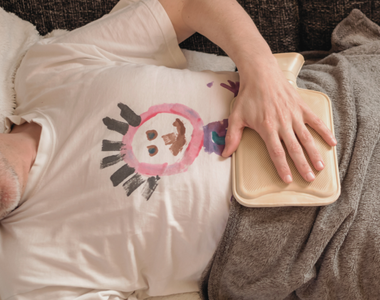
“Një jetë e mirë nuk kërkon ndjenja të sinqerta për hir të autenticitetit, por kërkon rebelim ndaj impulseve negative dhe të bësh atë që duhet, edhe kur nuk doni,” shkruan Arthur C. Brooks, autor i “Gross National Happines, një rubrikë në The New York Times.
Në artikullin e vititi 2015, ai shpjegon se “të sillesh sikur je mirënjohës, të bën vërtet mirënjohës,” dhe përdor fakte shkencore për të mbrojtur argumentin.
Një studim i vitit 2003 krahasoi mirëqenien e pjesëmarrësve që listonin çdo javë për çfarë ishin mirënjohës dhe mirëqenien e atyre që listonin çdo javë gjërat që i irritonin ose që s’u falnin asnjë emocion. Studiuesit nxorrën në pah se pjesëmarrësit që fokusoheshin te mirënjohja shfaqnin mirëqenie më të lartë dhe dolën në përfundimin se “fokusimi i vetëdijshëm te bekimet në jetë ka përfitime emocionale dhe ndërpersonale.”
Pjesëmarrësit nuk iu futën studimit më pak apo më shumë mirënjohës se të tjerët dhe nuk ndryshuan asgjë në jetët e tyre. Thjesht ndryshuan perspektivën ndaj mirënjohjes dhe kjo i lumturoi.
Si e ka këtë efekt mirënjohja? Së pari, duke stimuluar dy rajone të rëndësishme të trurit: hipotalamusi, që rregullon stresin dhe zona vegmental ventral, që luan një rol të rëndësishëm në sistemin shpërblyes të trurit që prodhon ndjesinë e kënaqësisë.
Një studim i vitit 1993 zbuloi një tjetër mënyrë për të qenë më të lumtur edhe kur s’ndihemi të lumtur. Studiuesit zbuluan se buzëqeshja, qoftë e vetëdijshme, qoftë e pavetëdijshme ka të njëjtin efekt në aktivitetin e trurit. Mund ta bindësh trurin dhe trupin se je i lumtur edhe kur nuk je thjesht duke buzëqeshur forcërisht. “Kur silleni si të lumtur, pavarësisht ndjenjave, truri gënjehet dhe proceson emocione pozitive,” shpjegon Brooks. “Në fjalë të tjera, bëj sikur di, deri kur të dish vërtet.
Në rubrikën e tij, Brooks sugjeron që të ndjekim tre strategji për të vjelur efektet pozitive të mirënjohjes.
Së pari, praktikoni “mirënjohjen e brendshme.” Mbani një listë të përditshme a të përjavshme të gjërave që ju bëjnë mirënjohës. Për shembull, unë mund të shkruaj: Jam mirënjohëse që kam një punë që më pëlqen dhe që përmes kësaj pune mund të ndihmoj njerëz në vështirësi.
Së dyti, praktikoni mirënjohjen e jashtme. Dërgoni letra falenderimi dhe shpreheni mirënjohjen tuaj. Për shembull, mund t’i dërgoni një mesazh falenderues mikeshës që ju qëndroi pranë në një moment të vështirë.
Dhe së treti, jini mirënjohës për gjërat e vogla. Në fjalë të tjera, jini falenderues për gjëra të përditshme që i injoroni si frutat e freskëta apo një shtëpi e ngrohtë.
Jeni vallë të shqetësuar se dërgimi i i një letre falenderimi do t’ju bëjë të dukeni keq në sytë e miqve? Apo që s’do të ketë ndonjë ndikim në jetën e tyre?
Shkenca thotë se gaboheni.
Një studim i publikuar në Psychological Science në qershor të 2018-s, zbuloi se njerëzit e nënvlerësojnë sa rëndësi ka për të tjerët një letër falenderimi.
Studiuesit i kërkuan një grupi prej 100 pjesëmarrësish t’u shkruanin letra falenderimi njerëzve që donin të falenderonin, si një shok a një mësues. Dr. Amit Kumar, studiues, vuri re se letrat u merrnin më shumë se pesë minuta kohë pjesëmarrësve.
Pjesëmarrësve më pas iu kërkua të vlerësonin sa i habitur, i lumtur dhe i sikletosur do të ndihej marrësi i letrës kur ta lexonte. Dhe së fundi, marrësit e letrave u pyetën si u ndjenë nga letrat e falenderimit.
Mesa duket, letërshkruesit e mbivlerësuan sikletin që do të ndjenin letërmarrësit dhe nënvlerësuan efektet pozitive. Gazetarja Heather Murphy, e The New York Times, shkruan: “Pasi morën letra falenderimi dhe pasi plotësuan pyetësorët, letërmarrësit thanë se u ndjenë shumë mirë dhe se lumturinë e vlerësuan me 4/5. Letërshkruesit hamendësuan një nivel lumturie 3/5."
Nëse mirënjohja edhe kur s’po ndodh ndonjë gjë për të qenë mirënjohës ju bën mirë dhe ka efekt pozitiv në jetën tuaj dhe të tjerëve rrotull jush, pse të mos e praktikoni çdo ditë?
Bëni siç rekomandon në librin “Authentic Happiness” babai i psikologjisë pozitive, Martin Seligman dhe shkruani një letër falenderimi në ditë. Shpenzoni pesë minuta në mëngjes ose mbrëmje për t’i shprehur mirënjohjen një njeriu të dashur. Shkenca thotë që do të ndiheni në siklet, por duhet ta bëni gjithsesi.
Nga Andrea Brandt, Ph.D për Psychology Today







